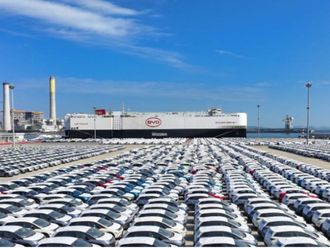Dubai: The possibility of oil prices setting records next year is very high, according to Dr A.F. Al Hajji, Gulf Energy Programme moderator at the Dubai-based Gulf Research Centre.
The oil price increase will boost the revenues of the Gulf countries, which will earn about $270 billion (Dh991.74 billion) from oil exports in 2005, he said.
"It is interesting to note that Iraq and the United Kingdom have dropped from the top 10 oil producer rankings in 2005 after a very long period," Al Hajji said.
"It is also interesting to note that Saudi Arabia and Kuwait were the only two Gulf Cooperation Council (GCC) members in the Organisation of Petroleum Exporting Countries, or Opec, to feature among the top ten oil producers of 2005," he said.
"Factors such as a severe winter and violent hurricane season accompanied by a declining US dollar will definitely lead to new records in the summer of 2006," Al Hajji.
Next year oil prices will depend on the size of the additional production capacity relative to the increase in demand and the size of supply disruptions from various international political, natural and technical factors," he said.
According to him, 2005 is the only period in history when oil prices increased substantially without any major political events. This proves that world oil markets were fundamentally tight this year.
"2005 saw Opec members run out of marketable excess capacity, non-Opec production growth figures at lower-than-expected levels, a continuum in world demand and a relatively small increase in stocks in term of demand cover, which was concentrated in certain areas, and mostly heavy crude," said Al Hajji.
According to him, both supply and demand will increase in 2006.
"It might take until the beginning of the next hurricane season to restore US crude oil and products production. It might take even longer if hurricanes in the Gulf of Mexico create a class of 'discouraged companies', who are unwilling to invest in this region. This comes in the light of predictions which suggest that strong hurricane seasons may last until 2015," said Al Hajji.
Post-Katrina and Rita hurricanes, the United States realised that there was a lack of expertise to clean up most of the flooded refineries and pipelines, which remain shut or inaccessible to date.
"On the downside, a combination of mild weather, a weak hurricane season, higher interest rates and lower government expenditures, especially in the United States, will lead to lower oil prices," he said.
"A combination of events on the upside and downside, which is the most likely scenario, will increase market volatility, but might not force oil prices above 2005 levels," said Al Hajji.












